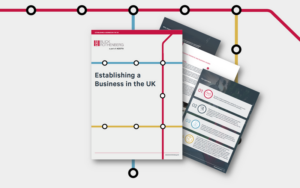Tax year end should be moved without delay
Changing the tax year end could reduce administrative errors when completing tax returns and help to cut the ‘tax gap’, says Nimesh Shah
An Office of Tax Simplification (OTS) review on moving the tax year from 5 April to 31 March is a logical move, and the Government and HM Revenue & Customs (HMRC) should press ahead with the implementation as soon as possible.
A short and surprise consultation by the OTS in June proposed moving the UK’s unique 5 April tax year, which has been the UK tax year end since 1800. The OTS did consider whether the tax year should be moved to 31 December, to align with other developed countries, who run their tax year to the calendar year, including the US, China, Germany, France, Italy, and Spain. However, that move seems to be a step too far and the OTS appear to favour only the five-day alteration.
Although the change only involves five days, there will be need to careful consideration given to HMRC’s systems, which are presently hardwired to 5 April.
There will be an administrative cost for the Government, and HMRC needs to be confident that it can deliver a technological change in the timeframe agreed, which is proposed as being April 2023 to coincide with the Making Tax Digital timeline.
If this change goes ahead, HMRC must act quickly to move ahead with the system updates, but they will also need to improve their communication to affected firms. Banks, investment managers, estate agents and others will need to update their own systems, at their own time and cost, so that they can provide individual taxpayers with the correct information for the new tax year end. It may only be five days but could require a complete re-coding of legacy systems and processes.
HMRC is facing a lot of change over the next 18 months, with the introduction of Making Tax Digital from April 2023, and last week’s announcements about the new Health & Social Care Levy will also require another significant system change, as the Government has insisted this tax should be shown as a separate line item on individual’s payslips. There is already a concern that HMRC will not have the resource or the time to implement these changes effectively, without adding a further change to the equation.
Reducing administrative errors
Many businesses, companies and sole traders prepare their accounts to 31 March, and HMRC accept that a 31 March accounting year end can be used for filing a personal tax return. However, the majority of personal tax reporting needs to run to 5 April, which can cause administrative complications and transactions between 1 April – 5 April and can sometimes be missed. The OTS believe that changing the tax year end could have the effect of reducing administrative errors when completing tax returns and help to reduce the ‘tax gap’ – the difference between the tax that the Treasury should have collected and what is actually received.
Separate to this proposal from OTS, HMRC have another consultation on ‘basis period reform’ which closed at the end of August. This HMRC consultation is allegedly centred around simplifying the tax rules to make all unincorporated businesses follow the tax year for their accounting year. If this change was introduced, it would take effect from April 2023, again to coincide with Making Tax Digital.
It seems that the OTS and HMRC have lined themselves to make all these changes fit with Making Tax Digital from April 2023.
Would you like to know more?
If you would like to discuss the above or how it may affect you, please get in touch with your usual Blick Rothenberg contact or Nimesh Shah using the details on this page.
For any press queries, please contact David Barzilay.
An Office of Tax Simplification (OTS) review on moving the tax year from 5 April to 31 March is a logical move, and the Government and HM Revenue & Customs (HMRC) should press ahead with the implementation as soon as possible.
A short and surprise consultation by the OTS in June proposed moving the UK’s unique 5 April tax year, which has been the UK tax year end since 1800. The OTS did consider whether the tax year should be moved to 31 December, to align with other developed countries, who run their tax year to the calendar year, including the US, China, Germany, France, Italy, and Spain. However, that move seems to be a step too far and the OTS appear to favour only the five-day alteration.
Although the change only involves five days, there will be need to careful consideration given to HMRC’s systems, which are presently hardwired to 5 April.
There will be an administrative cost for the Government, and HMRC needs to be confident that it can deliver a technological change in the timeframe agreed, which is proposed as being April 2023 to coincide with the Making Tax Digital timeline.
If this change goes ahead, HMRC must act quickly to move ahead with the system updates, but they will also need to improve their communication to affected firms. Banks, investment managers, estate agents and others will need to update their own systems, at their own time and cost, so that they can provide individual taxpayers with the correct information for the new tax year end. It may only be five days but could require a complete re-coding of legacy systems and processes.
HMRC is facing a lot of change over the next 18 months, with the introduction of Making Tax Digital from April 2023, and last week’s announcements about the new Health & Social Care Levy will also require another significant system change, as the Government has insisted this tax should be shown as a separate line item on individual’s payslips. There is already a concern that HMRC will not have the resource or the time to implement these changes effectively, without adding a further change to the equation.
Reducing administrative errors
Many businesses, companies and sole traders prepare their accounts to 31 March, and HMRC accept that a 31 March accounting year end can be used for filing a personal tax return. However, the majority of personal tax reporting needs to run to 5 April, which can cause administrative complications and transactions between 1 April – 5 April and can sometimes be missed. The OTS believe that changing the tax year end could have the effect of reducing administrative errors when completing tax returns and help to reduce the ‘tax gap’ – the difference between the tax that the Treasury should have collected and what is actually received.
Separate to this proposal from OTS, HMRC have another consultation on ‘basis period reform’ which closed at the end of August. This HMRC consultation is allegedly centred around simplifying the tax rules to make all unincorporated businesses follow the tax year for their accounting year. If this change was introduced, it would take effect from April 2023, again to coincide with Making Tax Digital.
It seems that the OTS and HMRC have lined themselves to make all these changes fit with Making Tax Digital from April 2023.
Would you like to know more?
If you would like to discuss the above or how it may affect you, please get in touch with your usual Blick Rothenberg contact or Nimesh Shah using the details on this page.
For any press queries, please contact David Barzilay.

You may also be interested in

Self’s assessment: Budget changes to the HICBC

Non-domicile changes – Trust protection










